Community Compensation Project
Community Compensation Project
King County is working to become an anti-racist and pro-equity government. Our teams look to community engagement and co-creation to reach and work with those most affected by inequality. Co-creating with the community is vital to sharing power, one of our four pro-equity actions.
Launching the Community Compensation Project
The Office of Equity and Social Justice hired Root Cause Equity Consulting from Austin, Texas. We seek to understand our current practices for compensating community members who take part in advisory groups. This effort will help us set up consistent standards across our government.
The project will identify best practices. We will connect with department leaders, community engagers, and residents to produce a study, framework, and guide to implement these approaches County-wide.
Project News:
- Root Cause submitted its final report to King County on 01-18-2023.
- The Community Engagement & Co-Creation (CEC) Team and other internal partners are creating proposed legislative changes that could allow compensation for currently ineligible groups.
- The CEC Team is also creating a working guidance document incorporating information and practices from the Root Cause report and WA State Community Compensation Guidance.
Why Community Compensation Matters
Giving expertise and experience in a meaningful and ongoing way is a significant time commitment for residents. As a volunteer, the work being asked, plus relationship-building with local governments, is a lot to do.
People from our most vulnerable and affected communities often have fewer resources to dedicate outside their home and work duties. These and other barriers create unfair burdens on marginalized residents. Our teams recognize that community expertise is invaluable, so we should fairly compensate people for their time and remove other barriers to civic engagement.
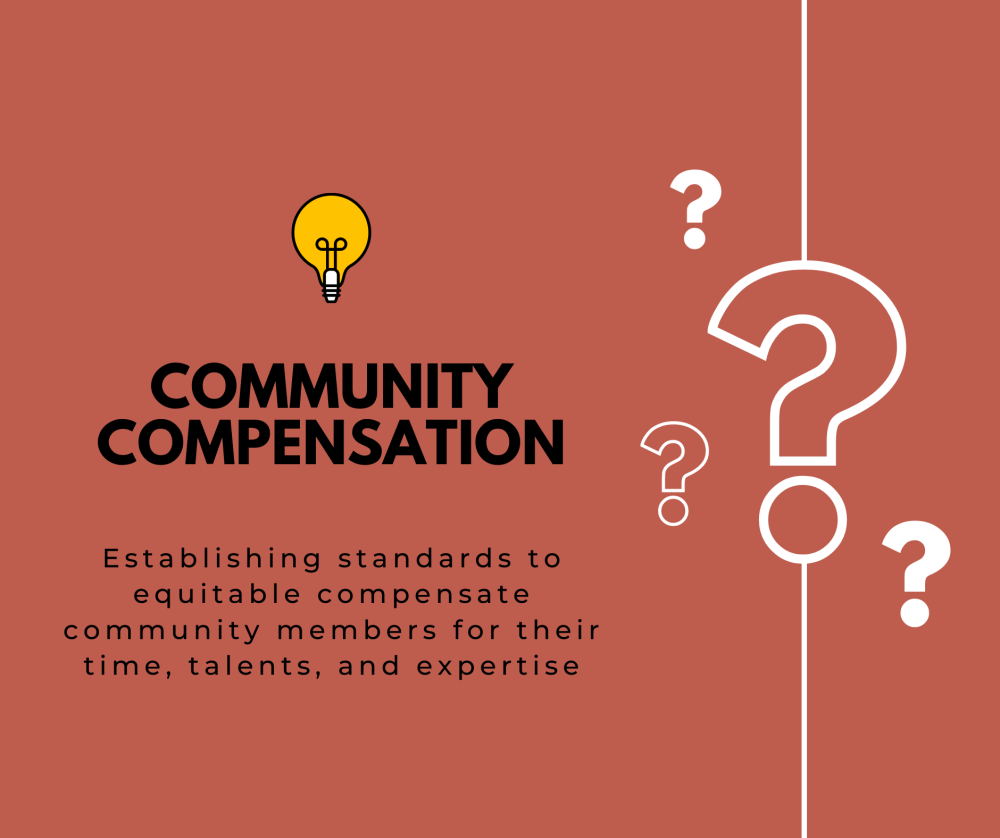
Community Compensation
Co-creation, community engagement, and community compensation are not new to King County. However, not all departments and policies take the same approach when connecting with residents. These inconsistencies affect our most vulnerable and historically marginalized communities the most.
We seek input and collaboration on projects from the people we will impact the greatest, so we need to create equitable pathways for them to participate in the process. Unpaid time is a significant barrier to engagement—especially for people of marginalized communities.
We value the time, experience, and expertise that community members bring, so creating equitable models and standards for compensation is vital to our commitments to anti-racism and pro-equity initiatives.
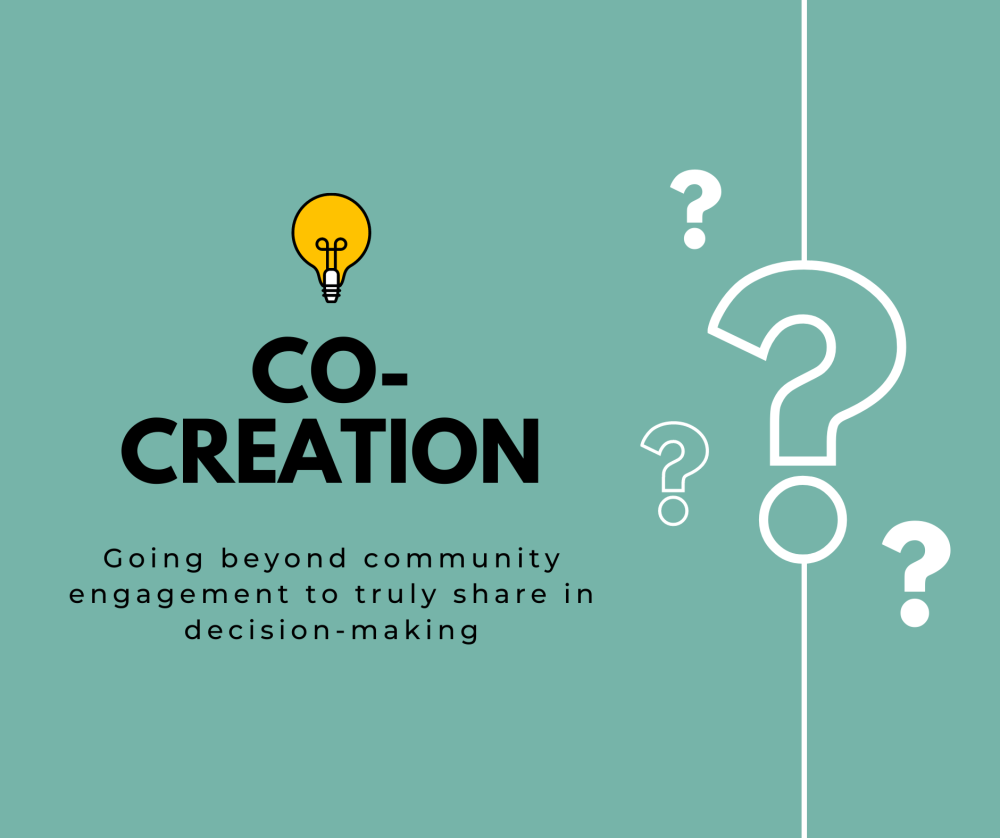
Co-Creation
Co-creation is a mindset and approach to working with the community to tackle specific challenges. It uses a participatory process that assumes shared power, responsibility, accountability, and decision-making.
Co-creation involves engaging with community members on strategy. We rely on their experience and expertise to identify and frame problems. People actively inform work plans and policies through this approach to create solutions.
It's not easy, and there aren't shortcuts!
Co-creation is a social and relational process that brings people together to learn and engage with each other. It requires cultivating dialogue, trust, and safe learning spaces. More than just pre-defined processes and tools, co-creation is an attitude. Facilitators take the role of stewards and connectors—not experts.
Traditional government models create "top-down" works and only engage community members at the end of the process. They do this through surveys, indirect communication, or polls. Co-creation instead invests in community-led innovation to shape the design and delivery of new projects.
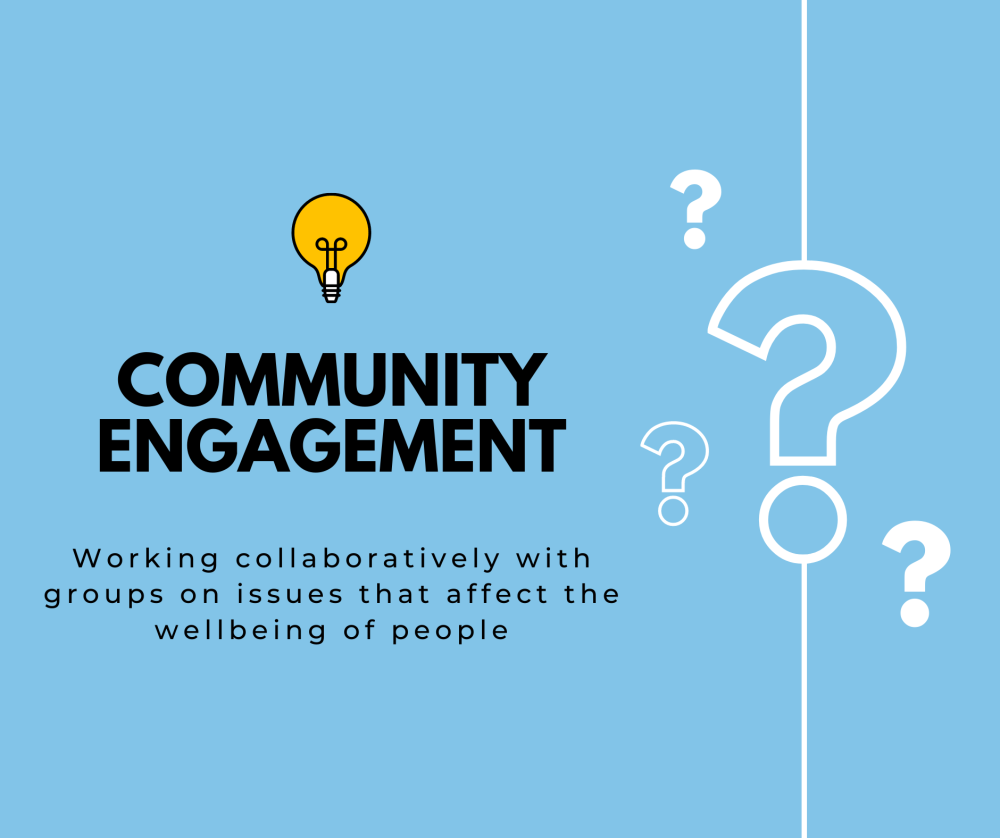
Community Engagement
Community engagement is working collaboratively with and through groups of people. Often they are connected by geography, interests, or likeness and come together to address issues affecting the collective wellbeing.
There is no perfect model for engagement since it depends on who you're engaging with. But there are principles, strategies, approaches, and tools to keep people informed and involved. There are also aspects of consulting and empowering communities.
Community Engagement and Co-Creation—what's the difference?
Engagement is an integral part of co-creation, and some of the concepts certainly overlap. Everyone will have their definition and implementation of each. But many people agree that the aspects of shared power and shaping the design and strategy are more co-creation.
You can engage communities on a project without the intentional co-creation process, but not the other way around. Some people see co-creation as the evolution of traditional engagement models.
Learn more about the OESJ Community Engagement and Co-Creation team and our other bodies of work.
For questions or comments, please reach out to CECteam@kingcounty.gov.
Documents
Community Listening Session #3
How to Participate
Are you interested in the Listening Sessions? Please complete a quick Interest Form, and we will follow up with the details. The session dates are as follows:
Language and accessibility options are available with advance notice. We will pay participants $50 for their time after they complete a post-meeting survey. All sessions are on Zoom.
- Wednesday, July 13, from 5:30 – 7:30 p.m.
- Saturday, July 16, from 10 a.m. – 12 p.m.
- Monday, July 18, from 5:30 – 7:30 p.m.
Community Listening Session #2
How to Participate
Are you interested in the Listening Sessions? Please complete a quick Interest Form, and we will follow up with the details. The session dates are as follows:
Language and accessibility options are available with advance notice. We will pay participants $50 for their time after they complete a post-meeting survey. All sessions are on Zoom.
- Wednesday, July 13, from 5:30 – 7:30 p.m.
- Saturday, July 16, from 10 a.m. – 12 p.m.
- Monday, July 18, from 5:30 – 7:30 p.m.
Community Listening Session #1
Thank you to everyone that requested to join the Community Listening Session. Because of the conversation we were trying to have, we had to cap the attendance for the meeting to make room for different voices.
We had over thirty-five community members join us to share their insights around community engagement and equitable compensation. The session was available in Spanish also.
How to Participate
Are you interested in the Listening Sessions? Please complete a quick Interest Form, and we will follow up with the details. The session dates are as follows:
Language and accessibility options are available with advance notice. We will pay participants $50 for their time after they complete a post-meeting survey. All sessions are on Zoom.
- Wednesday, July 13, from 5:30 – 7:30 p.m.
- Saturday, July 16, from 10 a.m. – 12 p.m.
- Monday, July 18, from 5:30 – 7:30 p.m.



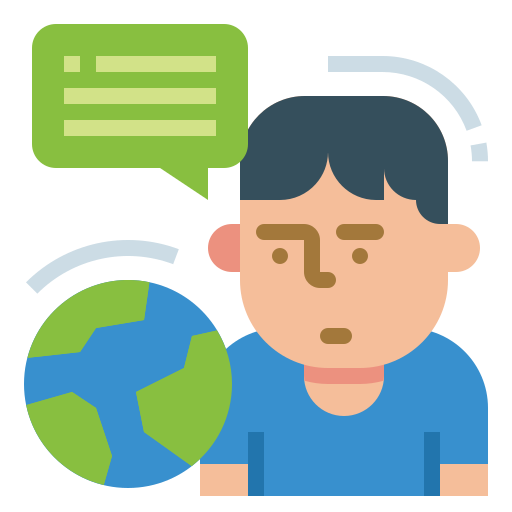 July 2022
July 2022 August 2022
August 2022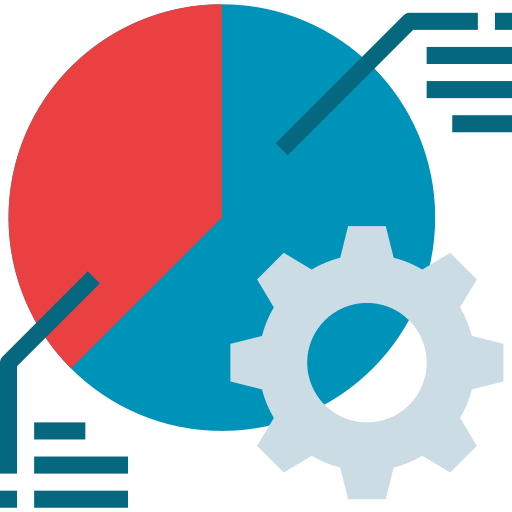
 October 2022 — January 2023
October 2022 — January 2023